
This time, I would like to talk about the flow of marine transportation. Especially in this topic, I’ll focus on FCL cargo.
How is a cargo actually transported in marine transportation? It’s important for beginners and apprentices of logistics to understand the flow of cargo and it’s paperwork.
First of all, let’s understand the overall logistics flow, then you will know what to do in each section in the flow.
Explained by Animation Movie
I made the animation video for more clear understanding.
Logistics Flow
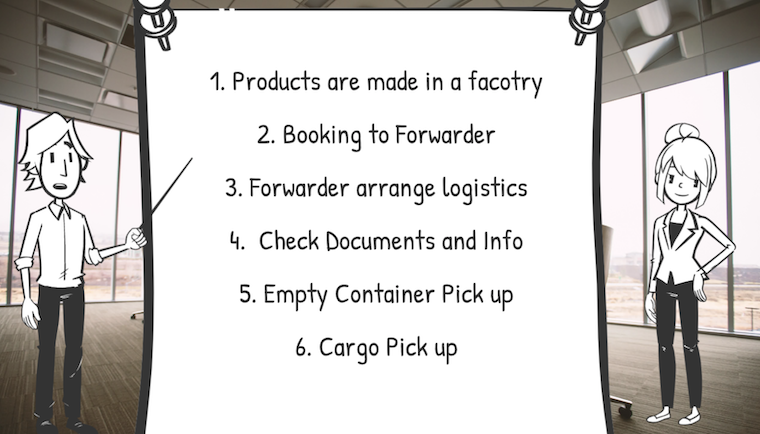
1. A product is made in the factory/ 2. There is a booking request from a customer/ 3. A forwarder arranges all logistics/ 4. All required documents are checked/ 5. An empty container is picked up/ 6. An empty container is delivered to a customer and a cargo is picked up.
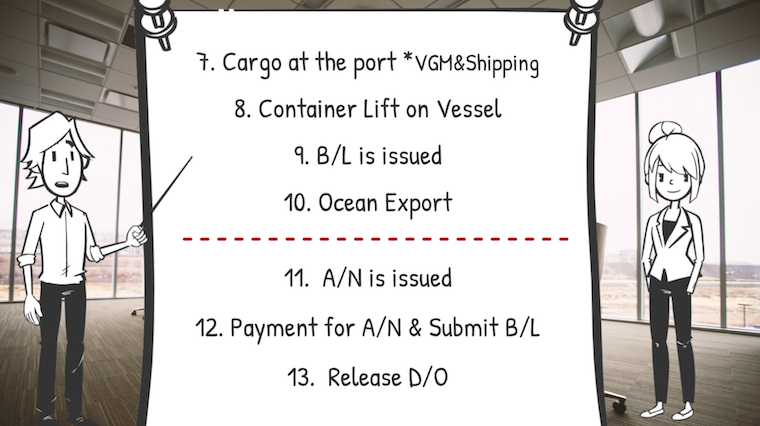
7. The cargo arrives at a port*VGM&Shipping / 8. The container is loaded onto a vessel/ 9. B/L is issued when the vessel leaves the port/ 10. Marine transportation is done/ 11. Arrival Notice is issued/ 12. Payment for A/N & B/L is submitted/ 13. D/O is released from forwarder to importer.
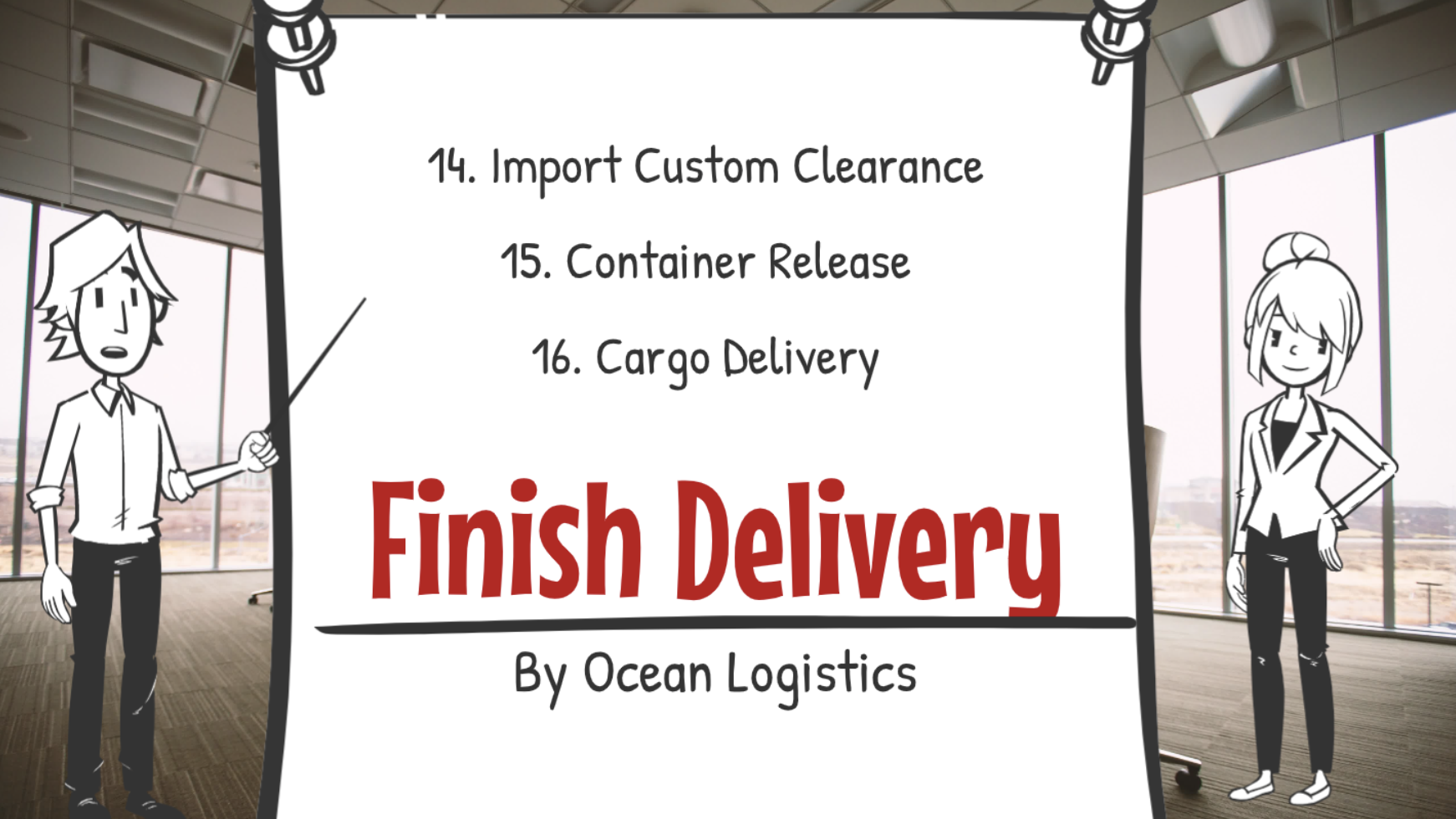
14. import custom clearance/ 15. the cargos is released/ 16. The cargo is being delivered.
 Cat・Sea Gull
Cat・Sea Gull There are so many process till finishing delivery cargo.
Cargo is made at the factory
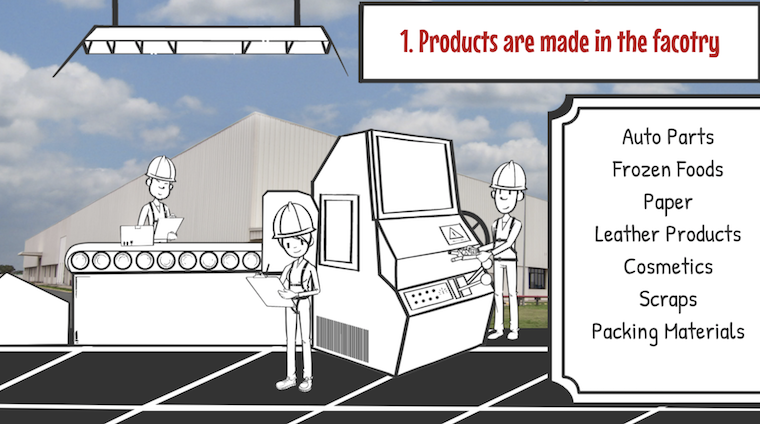
First, let’s see the production work in a factory.
It is quite rare for an individual person to use containers for transportation, but some factories produce goods every day, and ship them overseas every week.
Our customers also transport various cargoes by marine transportation, including automotive parts, frozen foods, paper, leather products, cosmetics, scraps, packaging materials, and so on.
 Senior Cat
Senior Cat We have so many different type of customers.
 Senior Seagull
Senior Seagull Totally different!
Booking to the Forwarder
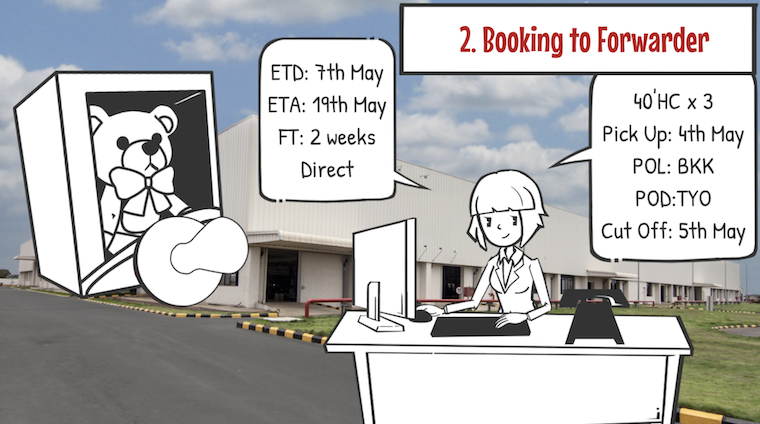
Once the QC of a completed product is done, a factory’s shipping representative send a booking to a forwarder.
At this time, the followings are informed
・Container Type
・Container Quantity
・Pick-up date
・Loading place
・Unloading place
・Cut Off Date
・ETD
・ETA
・Free Time
・Direct or Transship
and so on.
Forwarder arrange logistics
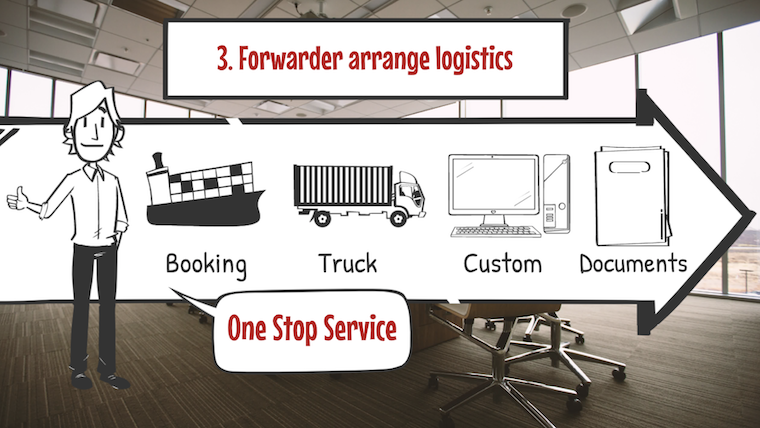
Based on the information, the forwarder prepares vessels, trucks, custom clearance, and confirms necessary documents.
Basically, many customers request a one-stop logistics service which has advantages of having a single contact to complete logistics to a forwarder.
 Senior Cat
Senior Cat We believe it should be so easy for customer to use one-stop service.
Check necessary documents and information
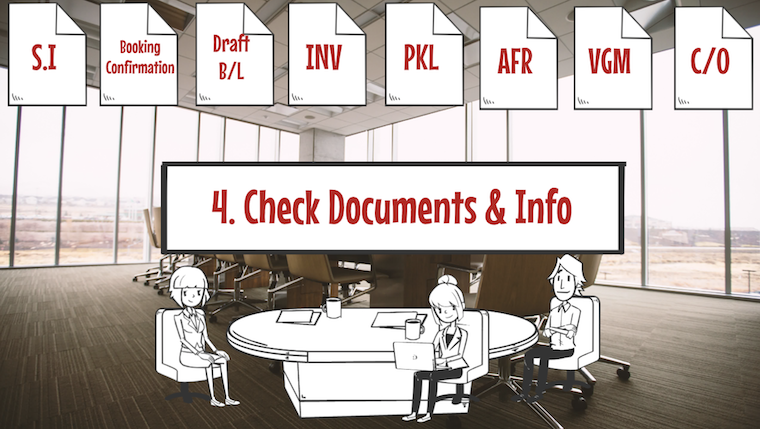
And this checking the necessary documents is especially important. If any of information is wrong, a cargo cannot pass through custom clearance properly nor board a vessel.
In addition, if a certificate of origin has a mistake, a cargo is not allowed for duty reduction. We need special attention for paperwork mistakes.
 Senior Seagull
Senior Seagull Please be careful..Please..
Pick up the empty container
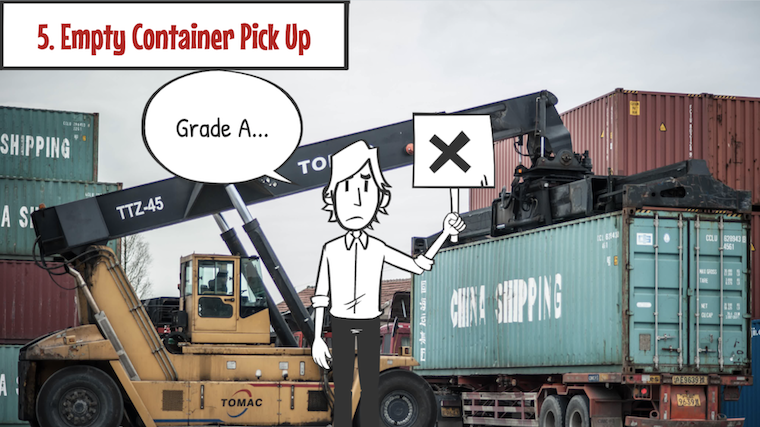
To pick up a cargo, we visit a container depot to pick up an empty container in the morning of the cargo pickup or in the evening of the day before.Container depots are also referred to as container vanpools.
The depot is stacked with lots of used shipping company containers that have been cleaned and repaired.
When picking up an empty container, we have to be careful of the quality of the container.A poor quality container is sometimes assigned even though we have booked a container grade A.
Our service is to ensure that our truck drivers check the quality of the containers they pick up and deliver them to our customers.
Cargo Pick up
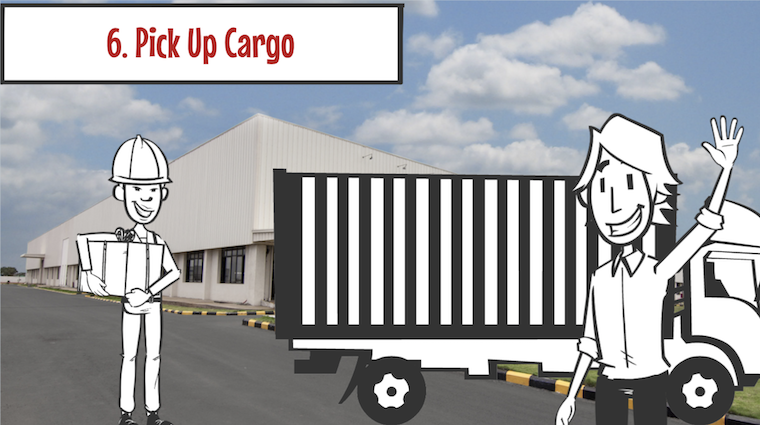
Once the empty container is delivered to a customer’s factory, we load cargo into it.A large scale customer may use dozens of containers a day.
We calculate the time to load and also manages truck’s delivery schedule.The container may shake greatly at sea, so it is important that cargo is not moved inside.
It must also be lashed firmly.
Container arrives at the port
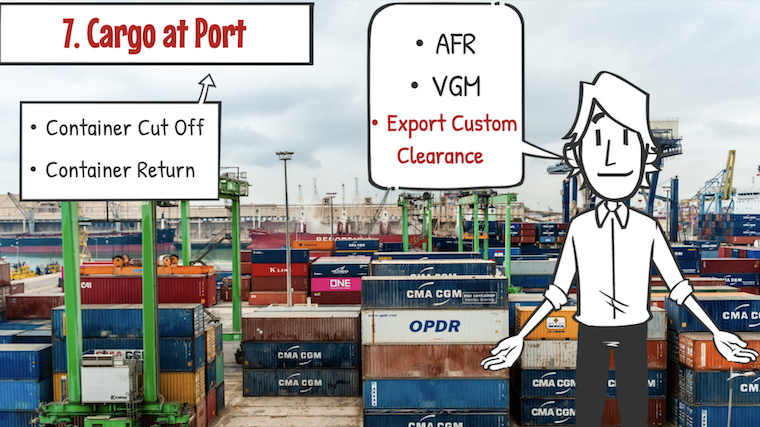
The container arrives at a port, where it is loaded onto a vessel. The term “Cut Off” is used for dead line of container “gate in” at the port.
In addition, Container Return means that it has to go back to port to be loaded on a vessel. Before the container is loaded on a vessel.
・AFR (to Japan: advance declaration of exports – 24 hours before ETD)
・VGM (mandatory declaration of the total weight of the container)
and export custom clearance have to be completed. You have to apply a lot of applications before a cargo is loaded onto a vessel.
 Senior Cat
Senior Cat If export to USA, AMS has to be applied.
Terminal situation
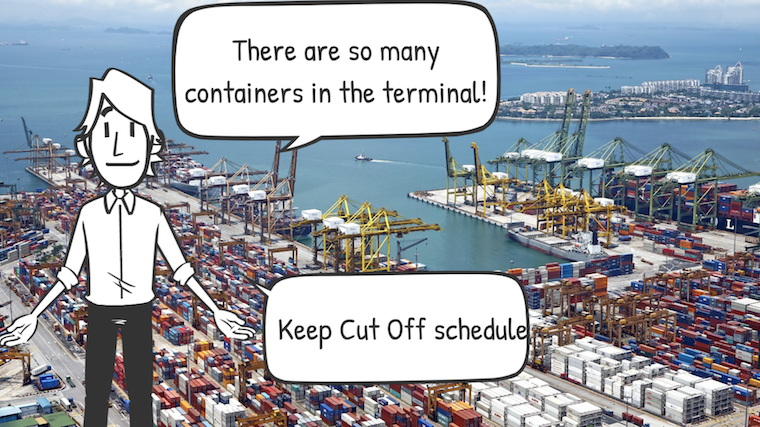
A really large number of containers are being collected in a terminal.
Therefore, Cut Off must be kept because enough time for loading and unloading in a port is necessary.
 Senior Seagull
Senior Seagull Some customers request to extend cut off time.
Container Lift On
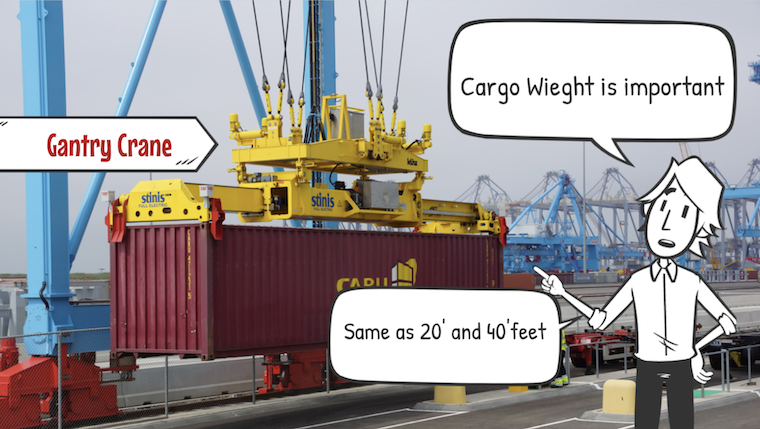
When a container is loaded onto a vessel, it is lifted and loaded by a large crane called a gantry crane.
The total weight of the container is a major issue since it is being lifted.
Container Weight
Some costumers inquire whether a 40 feet container can carry twice the weight of a 20 feet container, but
it can’t. Keep in mind that cargo weigh is roughly limited to about 25 tons, whether 20 feet or 40 feet.
The space on the vessel
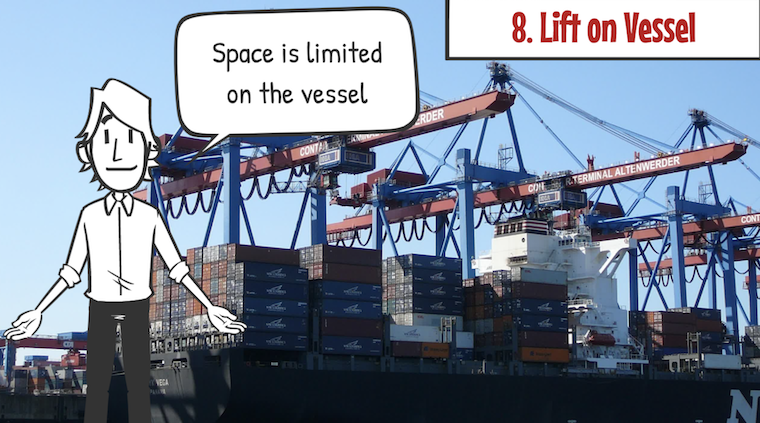
Like this, lots of containers are loaded onto a vessel. There is a limit of the space on a vessel as you see the picture.
Depending on the season, it can be difficult to keep a space.
B/L is issued
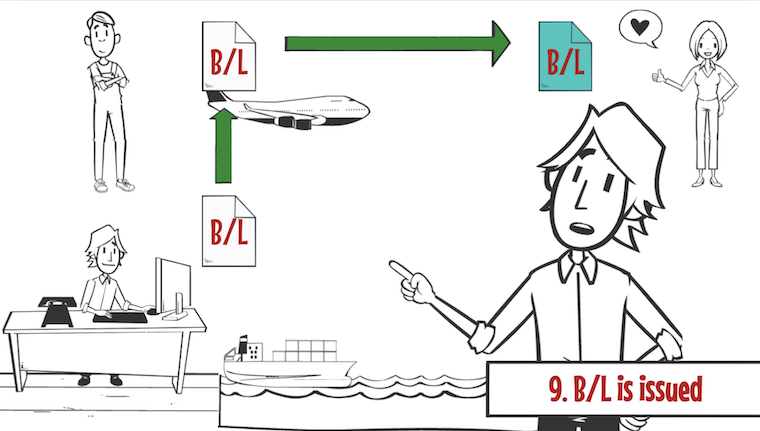
B/L is issued when a container is loaded onto a vessel. Let’s take a look at the flow.
B/L is issued by a forwarder, and it is sent to Shipper. During the time, payment for goods is made between Shipper and Consignee.
For Original B/L, Shipper will send the original B/L to Consignee by a courier service such as DHL or Fedex.
Thus, Consignee must obtain B/L to pick up D/O.
Ocean Shipment
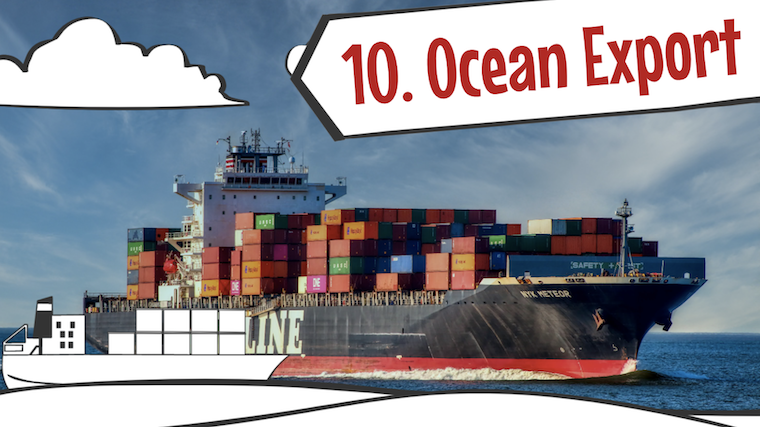
A container is repeatedly loaded and unloaded at each port, while being rocked in a vessel on the sea.
A vessel is sometimes delayed due to the weather, but this can’t be helped.
Marine transportation can take a few days to arrive if it’s the close ocean, but it may take up to two months if it’s a long route like Japan-Europe.
Arrival Notice is issued
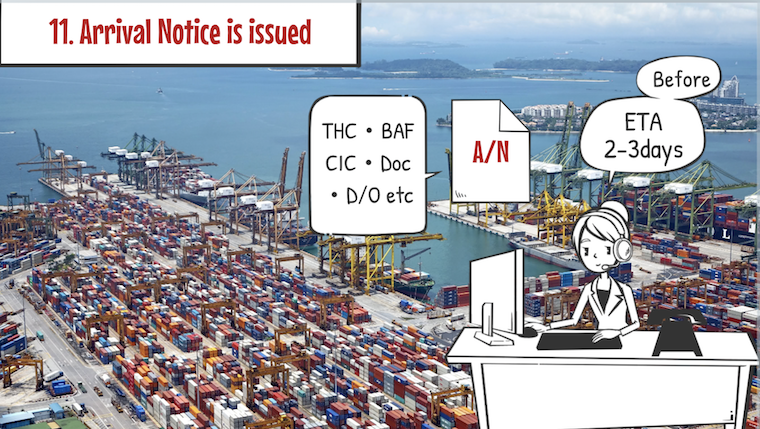
Before vessel arrive to the port, Arrival Notice is issued and sent by an importer’s forwarder to Consignee.
Arrival Notice has a number of costs, such as Terminal Handling charge and D/O fees, which an importer has to pay.
Import Process
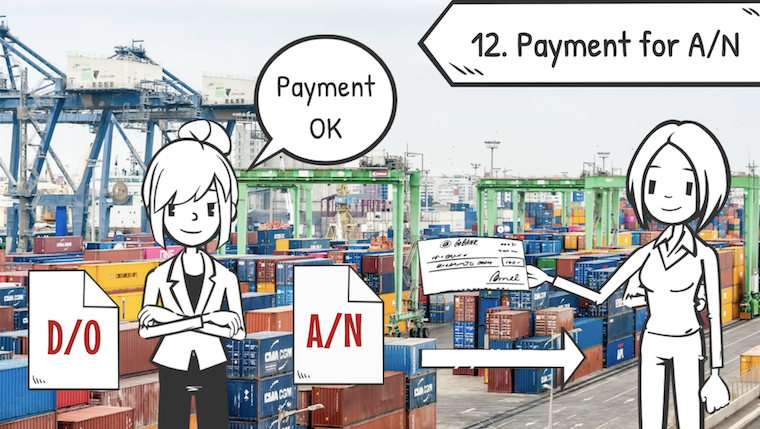
Let’s take a closer look at the import process.
Payment for Arrival Notice
An importer must obtain D/O, which is a delivery note.
So, the amount of money that is written on Arrival Notice is payed to a forwarder.
Submit B/L
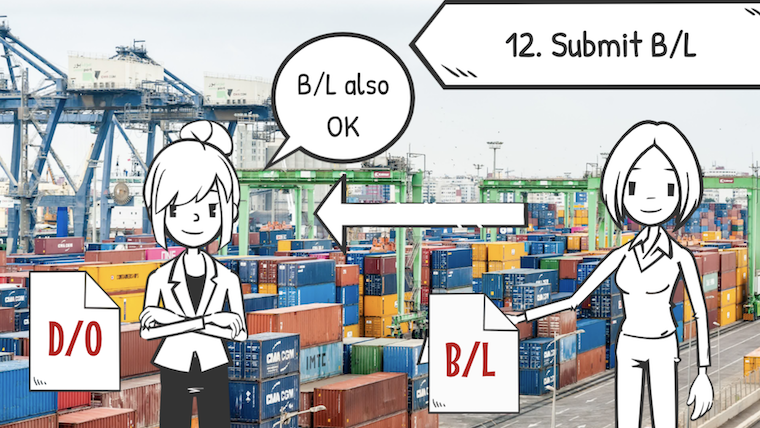
At the same timing of the Arrival Notice payment, B/L is also submitted.
If it’s an original B/L, the original document is submitted, and if it’s Surrendered B/L, a copy is submitted to a forwarder.
D/O is released
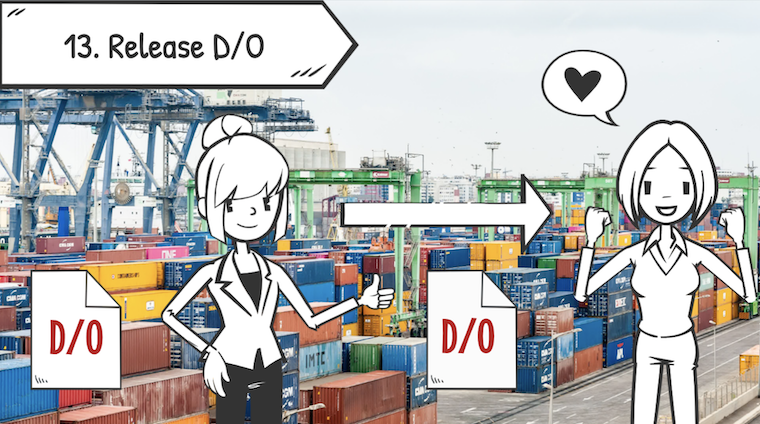
In exchange for Arrival Notice payments and B/L submission, an importer’s forwarder releases D/O to Consignee.
 Senior Cat
Senior Cat When I start working as forwarder, I could not understand this import process well..
Import custom clearance
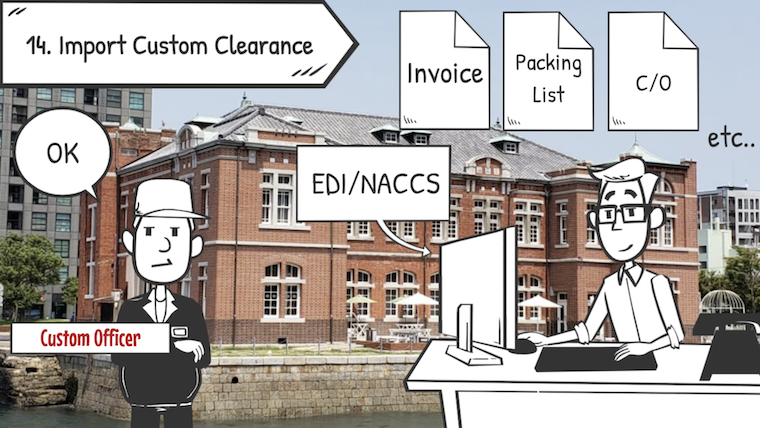
In order for an importer to pick up a container, not only D/O but also import custom clearance must be completed.
Documents such as Invoice, Packing List, and Certificate of Origin are entered into the system, and a shipping person declares the import.
If there is no problem with the declaration, they issue an import permit, but if not, an inspection will be required.
 Senior Seagull
Senior Seagull Import shipping is more difficult than export shipping..
Container is released
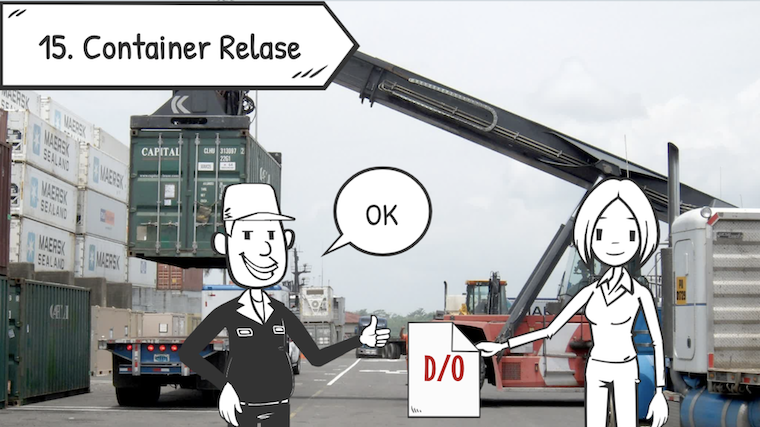
Having obtained D/O and completed import clearance, Consignee can submit D/O to container yard and they pick up the container from the yard.
Container is delivered
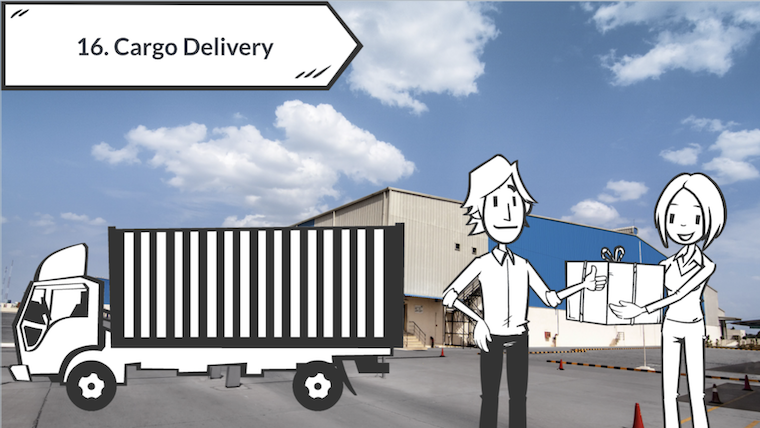
A trailer arrives at the destination, and a cargo is unloaded. This is the end of delivery.
After all this process, the cargo is finally sent to the overseas destination.
Summery
How did you like it? It looks like we’re just transporting cargo in a container, but there are various documents required in the process.
If there is a mistake in the documents, a cargo will not be transported smoothly.
Please understand the whole cargo and documents process so that you can make smooth international logistics arrangements.










